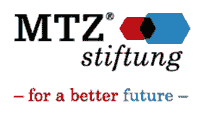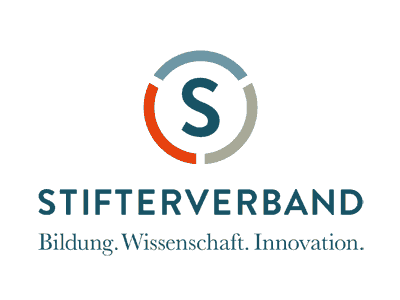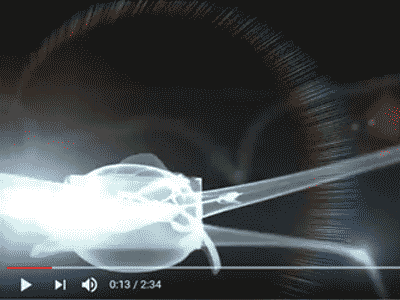MTZ® in Germany: Promoting new dimensions of cutting-edge medical research by YOUNG SCIENTIFIC EXCELLENCE through an important prize, the M T Z® - A w a r d
„Funding with a systematic approach“– Promotion of the promising scientific young talents

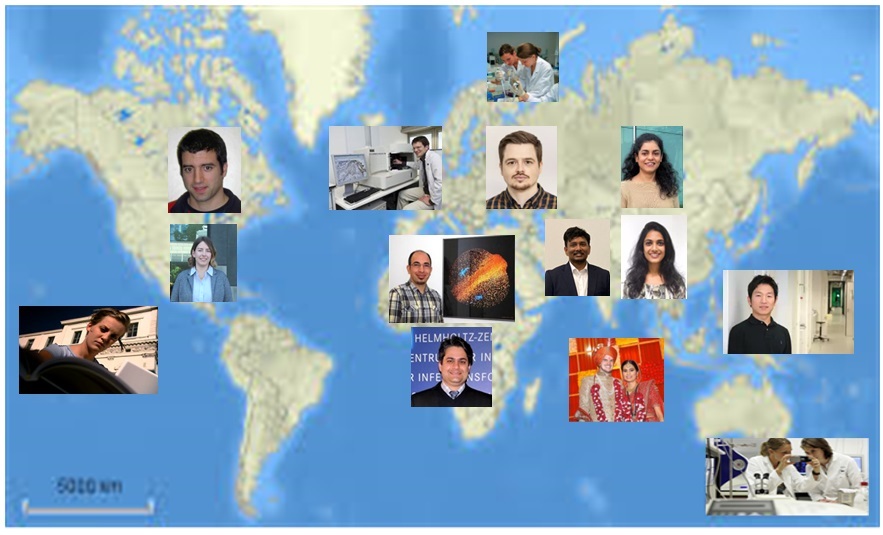

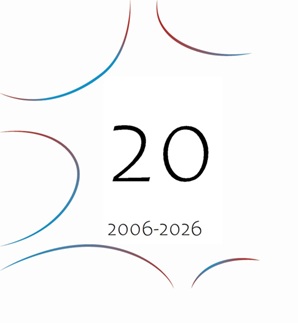
„Systematic Endowment“
Adopting the motto "For a better future ..." MTZ®Foundation promotes science and research in the field of Human Medicine for 20 years. The foundation supports the young generation of scientific talent and promotes their world class and cutting - edge work in biomedical stem cell and genetic research, which is in conformity with the highest bioethical standards. It promotes an interdisciplinary approach, that is, a conscious bringing together of traditional scientific approaches with medical Systems Biology.The innovative strength and speed of innovation in German science require us - the founders Monika and Thomas Zimmermann "MTZ" - to always stay at the cutting edge.
Showing the future, discussing the future, shaping the future –" the MTZ® Foundation as an "innovative network organization, is entering new dimensions in researching the causes of disease and developing medicines.
Basic research in the life sciences is carried out in the important German science institutes. We have targeted strong professional partnerships with the Heinrich Heine University in Düsseldorf in a research alliance with the Leibniz Center for Diabetes Research (DDZ), the Max Planck Institute for Molecular Biomedicine in Münster, and with the Helmholtz Association in the area of " HELMHOLTZ HEALTH", which includes, among others, the German Cancer Research Center (DKFZ) in Heidelberg and the HZI Helmholtz Center for Infection Research in Braunschweig. In these outstanding German research hotspots, young academic excellence finds an optimal research environment and can fully exploit their potential.
This is how we have been able to promote so far groundbreaking research results - even in the digital age, still classically achieved in the laboratories "in vivo and in vitro" - in diabetes and cancer research, in pluripotent stem cells research, in tissue biology and vascular cell biology research and in CORONA research.
Scientists at the Max-Plank-Institute for Molecular Biomedicine in Münster are re-progamming cells to behave like embryonic stem-cells, developing the ability to form each of the more than 200 different cell types found in the human body. Generating these so-called Induced Pluripotent Stem cells (iPS) does not require the use of ovules or embryos.
Especially in the fight against highly complex systemic diseases such as cancer and metabolic disorders (including diabetes and liver disease), the MTZ® Foundation has, from the very beginning, embraced digital developments in cutting-edge medical research and their immense potential. Only the interplay of the three approaches "in vivo, in vitro, and in silico" is innovative and groundbreaking.
Since 2007, the promotion of medically oriented systems biology as a highly innovative research approach in Germany has been closely linked to the MTZ® Foundation. The MTZ® Award for Medical Systems Biology was the first national award for young researchers in the field of medical systems biology in Europe. The wealth of data on individual cell components and functions, which is obtained at various levels of life processes using traditional scientific research approaches (genome, proteome, metabolome), is brought into a meaningful, larger and sometimes new overall context in systems biology using mathematical computer-aided modeling ("in silico") and bioprocess engineering. The focus is on the question of how complex biological systems, with their interconnected subprocesses, can function. Only in this way can the regulation and control of biological systems, their controllability, and system behavior, be understood and further unraveled. Physicians, biologists, bioinformaticians, and natural scientists from other disciplines work together in an interdisciplinary manner. The resulting models allow strategies and advanced hypotheses to be directly simulated experimentally. These simulations are increasingly replacing lengthy experiments with cell tissue in the laboratory (including animal experiments) and contributing to faster and more effective research results – a new dimension in basic research in the life sciences.
Thus, knowledge about the functions of complex biological systems is expanding, enabling scientists to increasingly identify malfunctions – in great detail – as the cause of serious diseases. Systems biology has enabled us to understand, for example, tumor biology with the proteomic* and morphological* characteristics typical of each tumor, a dynamic ongoing advance in knowledge. The same applies to systems biology research into the specific genotype* of diabetes. The result of recent years has been a focus on the development of tumor markers and biomarkers that are used for diagnosis in current clinical practice. These are relevant for therapy and thus also the basis for the development of drugs and vaccines.
Systems biology as basic research remains immensely important and the mathematical modeling of biological systems is becoming increasingly refined.
But cutting-edge research does not stand still and is constantly evolving in the face of innovative IT technology and large amounts of data - “big data in medicine”. Intelligent algorithms make a decisive contribution to linking the biological systems described above with digitized clinical patient data. Systems biology is increasingly being recognized as essential basic research and thus a bridge for (systems) medicine, which, supported by AI, enables individually tailored disease control in clinical applications.
The first corresponding algorithms are already being tested in everyday clinical practice and will make it possible in future to tailor diagnostic options, treatment strategies or prevention approaches specifically for each person and at the right time. Deep learning/machine learning in medicine, for example in cancer treatment at German university hospitals, works as follows: the AI learns the systems biology genotype* of a tumor and, in a second step, how it changes based on the treatment data of many patients. This initially enables a verified individual diagnosis of the tumor.
This initially enables a verified individual diagnosis and, as the disease progresses, precise treatment taking into account the individual stage of the disease. Especially with regard to many undesirable side effects of cancer therapies, such treatment optimization leads to an increased quality of life.
Tumor/biomarkers (signatures) are validated or initiate new research projects for their innovative further development.
"Many medical discoveries are the result of coincidence or observation: for example when doctors notice the same signs and symptoms of a disease in different patients and suddenly see a previously unrecognized connection. Such findings used to be disseminated separately and over long periods of time via medical journals. Today, new facts and findings are not only collected much faster and more efficiently but are also assessed in a broader context.
Digital technology enables us to collect and analyse increasing amounts of biomedical research data. It harbours considerable potential and is key to understanding the complex interaction of individual genetic factors and physiological aspects, lifestyles and environmental impacts in the development of diseases.
We want to use the opportunities offered by technological progress in the health sector to benefit the individual. With our medical informatics initiative, we are establishing the preconditions to enable different institutions to make use of the data generated by research and healthcare. That is what research for the people is all about: Clearly improving conditions for patients. At the same time, we also want medical research to benefit from a better data and knowledge base.
An interdisciplinary, holistic approach to research is needed to generate new findings from the data collected. That is precisely what systems medicine is about: By combining biology, medicine, physics, mathematics and informatics, systems medicine creates the foundation for enhancing diagnostics, treatments and disease prevention.
It is my pleasure to be the patron of the seventh international conference on systems biology of mammalian cells SBMC 2018 – with a focus on the potential of systems medicine. The promotion of young talent is a topic that is particularly dear to my heart and I am therefore especially delighted that under my patronage the conference is honouring three outstanding doctoral theses with the MTZ Award for Medical Systems Biology 2018."

Message of greeting for the 7th International Conference on Systems Biology of Mammalian Cells (SBMC 2018) of the Federal Minister of Education and Research Anja Karliczek MdB
Bildnachweis: Bundesregierung / Guido Bergmann (am Bild)


"I have a great respect of the achievement of the young scientists. By way of Systems Biology they take the research in the cellular and genetic domain into a new dimension."
(Zitat vom 12.02.2008)
MTZ®-SBambassadress
Frau Netta Or
The young soprano
“Star of opera of the new generation”

The main focus of MTZ®Foundation in the future lies on individualised medicine and systems medicine. In this context Medical Systems Biology is the foundation for a medicine that responds to the individual needs of each patient. The way to a more personalized medicine will become more important in future funding.
Particularly in regard to preserving the quality of life of an increasingly aging society, problems of Bioethics will play an important role in the foundation’s work. It is of special concern to the MTZ®Foundation to determine to what extent modern cell and/or gene research already satisfies bioethical concerns and where possible limits to that research may be found. In this way, the foundation significantly contributes to the societal discussion of “a better future”. The MTZ®Foundation greatly appreciates the decision by the Albert-Ludwigs-University in Freiburg to declare ethics a mandatory subject in medical school, with a final examination on that topic (it is the only university in Germany that has done so). With the MTZ® Förderpreis 2007, a prize has been awarded in the field of applied bioethics for the first time in the 550 year history of the University of Freiburg. The MTZ®stiftung chose to make the award to a scientist at the University of Freiburg medical faculty in the hope that it will promote bioethical research in the field of molecular medicine.
The MTZ®-Award(ee)
Young researchers play a central role and are at the heart of the foundation's work. Youthful curiosity and a constant willingness to pursue innovative research approaches - Germany is a country of outstanding talent. We support these top young scientists - doctoral students (including postdocs) - by awarding them a scientific prize. We help them to make the most of their talent.
The BMBF and internationally renowned professors from all over Germany on the high-caliber MTZ® selection committees use their expertise to ensure the high professional quality of the foundation's work in the long term. The MTZ® Award has thus become a trademark in Germany for an important prize in the CV of young scientific excellence.

